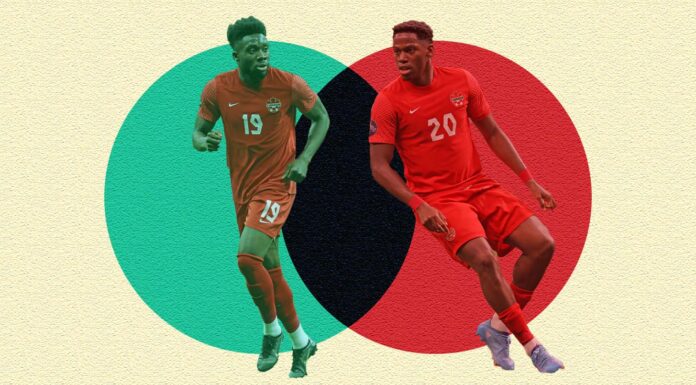Born out of a love of football and an awareness of fashion’s environmental footprint, Unwanted FC takes old football kits and upcycles them into various items ranging from bags to hats.
If you’re a lifelong football player or fan, you’ve probably worn at least a dozen kits in your time. And you definitely still have a few lying around somewhere in your house (or packed away in your parents’ garage).
And what about that shirt that doesn’t fit anymore? Or ones that were torn or damaged somewhere along your football supporting journey?
Hard to donate because of how specific they are, and often difficult to let go of for sentimental reasons, the age-old question of what to do with all your club kits and fan merch from the past is something we’ve all thought about.
On top of the personal conundrum, the excessive waste of the fashion industry and increasing concerns over the negative effects fast fashion has on the climate (not to mention the often unethical working conditions globally for those who manufacture clothing) makes the question even more glaring.
With a staggering 74% of discarded garments ending up in landfills annually, upcycling, the practice of repurposing old materials into new products, has become an increasingly popular trend in recent years as a measure to combat such prevalent waste in the fashion industry.

It’s the route football brand Unwanted FC has taken, offering a sustainable solution to the world of football by providing individuals the opportunity to not only purchase upcycled merchandise fashioned from vintage kits, but also to upcycle their own personal jerseys and kits as well.
Urban Pitch sat down to chat with Kevin Chan, who, along with his twin brother Keith, took his love of football and background in marketing and fashion to create Unwanted FC, a brand that is as much about spreading the benefits of upcycling as they are about celebrating the legacy and history of the football community at large.
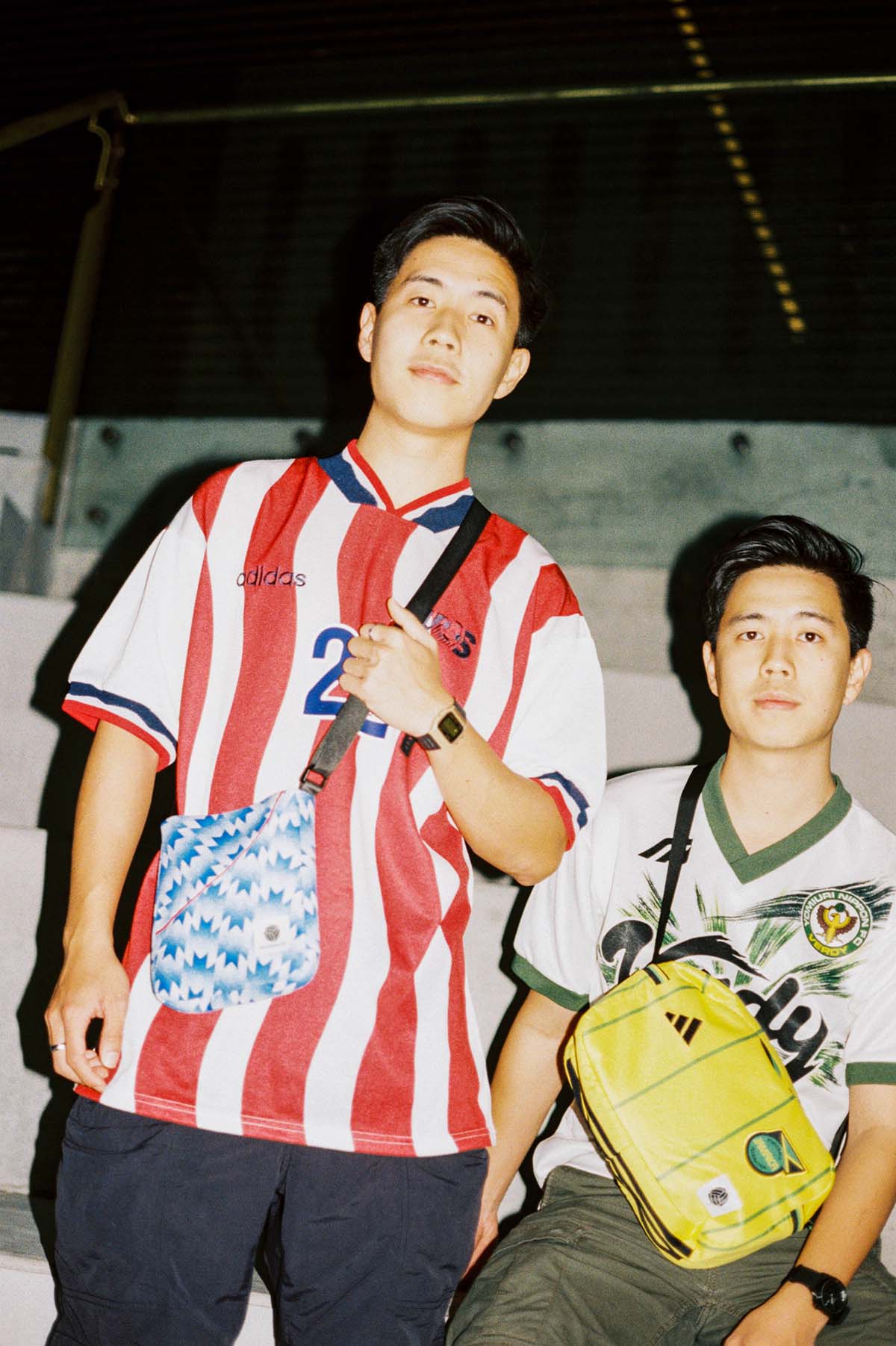
Urban Pitch: Tell us about Unwanted FC. What was the initial drive to found your own company and base it on upcycling?
Kevin Chan: Before we started Unwanted FC, I had thrown out so many vintage kits myself. My family did the same. So I still kick myself for that. And that’s exactly why we started Unwanted FC — to give old kits a second life.
I think growing up as crazy football fanatics, a lot of different life events have shaped Unwanted FC. My twin brother and I both loved football growing up. When we went to Queensland University of Technology, we studied the same thing, marketing. At that time, maybe like eight or nine years ago, sustainability had just started becoming a really hot topic in marketing. We took it really seriously. We were kind of that generation that started to challenge marketing, challenge the status quo and explore how green initiatives like upcycling could actually benefit a brand.
We did some really great sustainability and upcycling projects that eventually evolved into Unwanted FC after we graduated. We started thinking about how marketing can be more sustainable. We were also working for big global brands and in fashion buying, so that really gave us exposure to how wrong the industry is and how much waste there is in the world. Straight away, once we got a bit of real world work experience, we knew that we had to do something about it. We wanted to play our part in the circular economy.
That makes sense. I was recently looking into the projected growth for upcycled clothing, and it really is a rapidly expanding market.
Yeah, it’s definitely skyrocketed since COVID as well I’d say. A lot of people had the downtime to pick up hobbies. And a lot of people have sewing machines lying around. I think it was a great thing to do during lockdown. And coming out of lockdown, I’ve seen a few upcycled brands come to life as well.
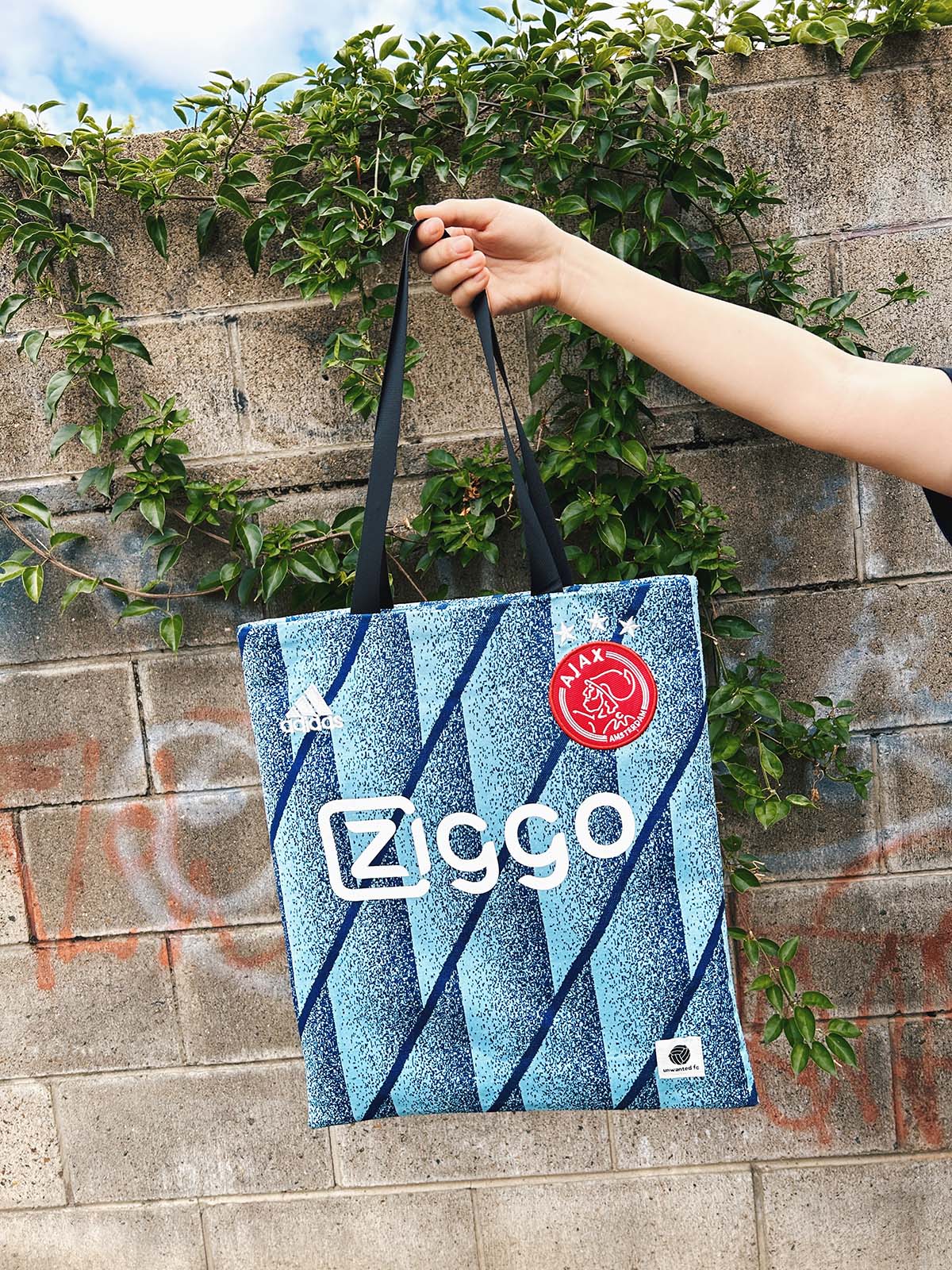
That’s awesome. It really seems like you found a way to merge sustainability and your love of football.
Yeah, we always wanted to do something in football. We always wanted to voice our own opinions and it just fell together. We thought that we could really make a statement around the circular economy and what football can do for sustainability. We’re just really, really, passionate about this topic and how these three pillars come together: football, fashion and sustainability. I feel like there’s a lot of people that love all three.
People like myself and you, but it’s never really spoken about in the same setting or sentence. I can’t really name a brand that does it well. adidas and Nike, they can’t really do it. They can’t really preach sustainable messages properly because they’re producing millions of units every season.
You mentioned your introduction to sustainability as part of studies for your marketing degree. What’s your relationship to the upcycled clothing process? Do you guys know how to sew or do you look elsewhere to get that done?
So we’re marketers by trade. We love product. We’re obsessed with product. But we do not know how to operate a sewing machine. We do love to put a lot of thought into the designs, and we love to put them together into a deck. And we bring that over to our team of local tailors and ex-fashion designers.
Starting off, it was really hard. There was a lot of sampling and trial and error, because we thought something would be easy to do. But then a tailor who knows how to work a sewing machine says it’s not possible, or it’s better done, or would be more efficient in a different format.
But yes, still, I think every season we try to come up with new designs, and we think that upcycling is so refreshing because there’s so many possibilities. And I think our sampling process is getting better. Every year we’re still trialing and erroring. But a lot of our ideas do come to life now.
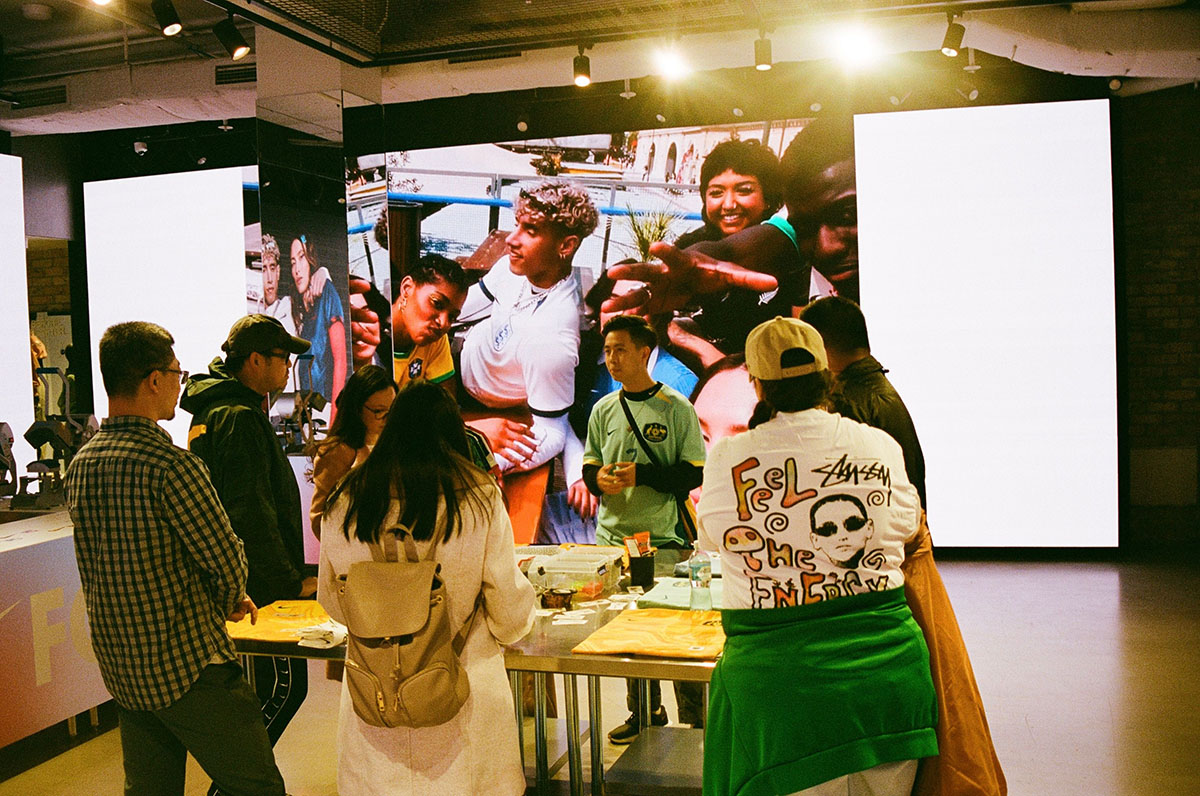
In addition to your list of items for sale online, you take custom orders as well where people can send in items to be upcycled into different products. Can you go into that process? Do you get some really specific requests or do the customers leave it up to you to rework their beloved kits?
A bit of both. I’d say, most customers trust our patterns. We have a lot of content on our website and on socials, so a lot of people are already inspired by our existing designs. So if they send in the shirt, they trust us that we’ll make a boot bag with the right detailing.
We take a lot of pride in each product we create. Everything is handmade. We always look for those key logos, the club crest, the sponsor, whether it’s adidas or Nike. We try to really showcase those elements in visible areas.
But that’s such a good question because some customers are very specific as some of these kits are from their childhood. There might be some small detailing that has sentimental value. Like recently we had a customer that had a shirt with their name embroidered on the inside when they were a kid, just in case it got lost. And they said, “My grandmother stitched this on. Could you try to keep that?” And we featured it on the handle of the boot bag.
The idea of upcycled fashion really meshes with the story of a particular kit, whether it be a personal history or the lore surrounding a professional team. How do you let that story or potency of the past drive your design work?
We always try to pay our respect to the original football kit design. I think a lot about what goes into football kit design. My brother and I have worked in the industry before. We used to work for adidas, and we see how much work and thought that goes into designing anything in football.
When you’re thinking about designing a shirt for a big club like Manchester United, you can’t get it wrong because they’ve got fans all over the world. And when it comes to cutting up one of their threads, you want to really pay respect to the original design. You don’t want to miss any special key elements of that shirt.
We try to upcycle with purpose, intention and not to forget to celebrate the beauty of football as a whole.
It really sounds like you’re also adding a new chapter, an epilogue to the history that’s already been written for a team.
Yep. Definitely. I really hope that’s what we’re doing. And I think that’s why it’s very beneficial for brands to work with a partner like us. There’s not much circularity in football kits. If there’s three or four new kits being launched every season, how can brands and clubs prolong the life of these jerseys?
I think upcycling is a great initiative. But even before you turn to upcycling, can you wear your kits for a season longer? Can you donate them to charity? There’s so many different outlets, and I definitely think upcycling is one of them.
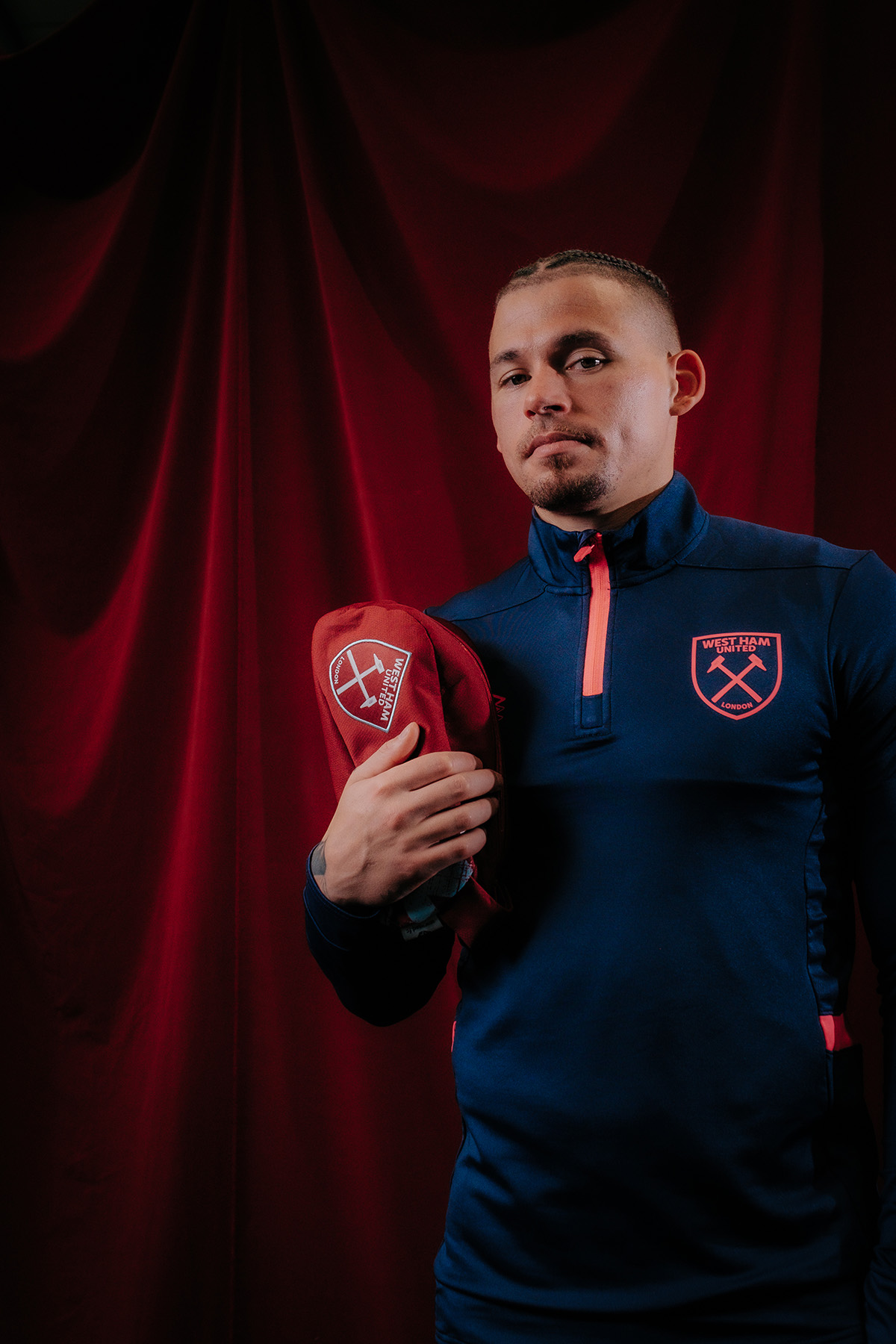
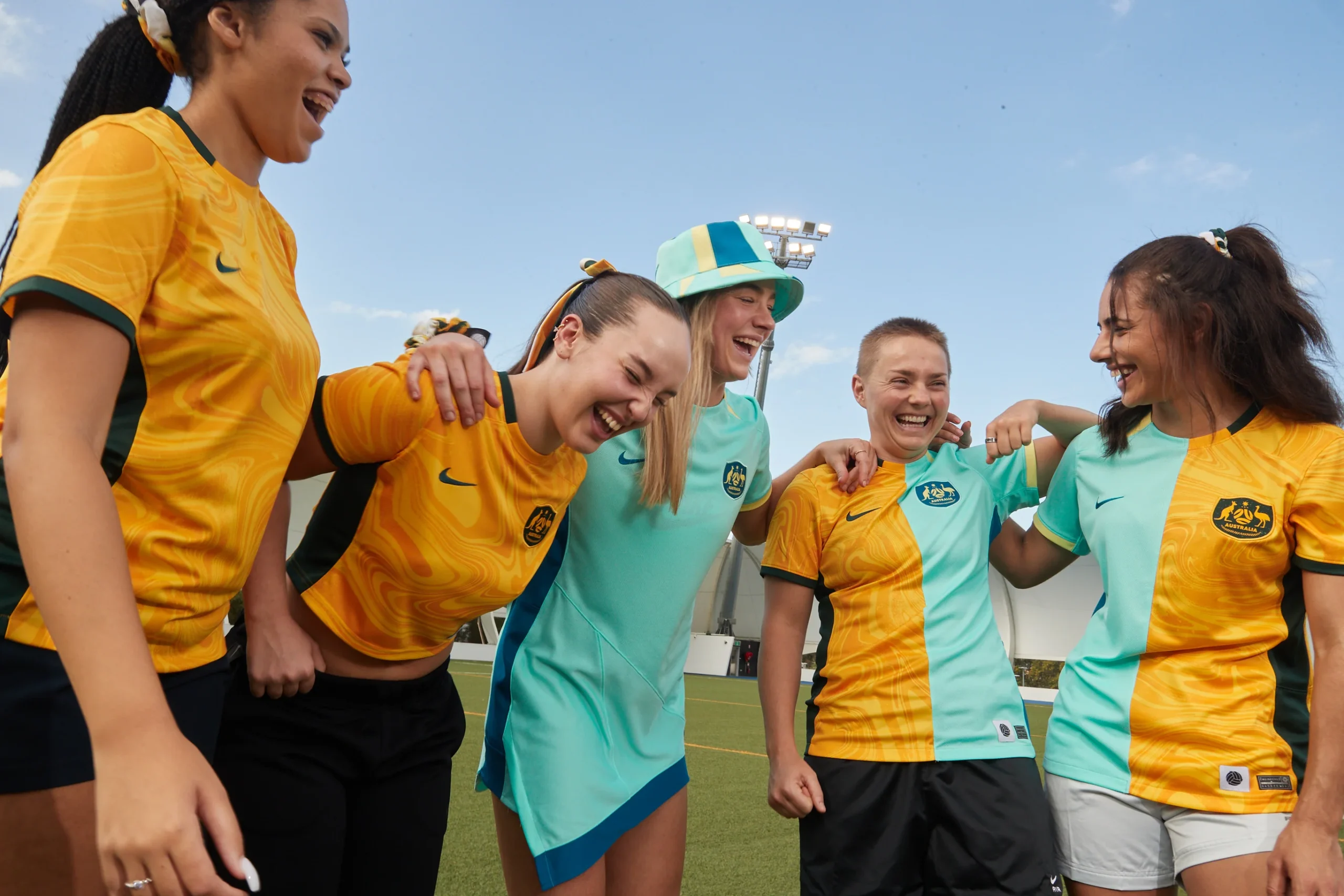
You guys have already worked with a couple of teams like West Ham to create upcycled wash bags, and with Australia’s Matildas for some of their apparel and merchandise. What team would you personally love to design for?
I’ve always loved Spanish clubs. Real Betis in Seville, they’ve got the most stylish man in football playing for them, Héctor Bellerín. He also loves sustainability. He’s an advocate for circularity. So I’d love to work with a club that already has those advocates that would really embrace a brand like us. That would be a dream.
Some other big clubs, like, think about Real Madrid. Everyone knows Real Madrid. They’ve just won the Champions League. They’ve won more trophies than any other club in the world. It’d be awesome to see them talk about circularity and advocate for sustainability.
We always like to support women’s football as well. We always think that there’s a chance to level the playing field on that side of the game. So I’d love to do more work for the Matildas. I’m also a big fan of the U.S. women’s national team. It seems like they’re really well loved, celebrated across the world. And that kind of aligns with our mission to become a global brand.
In terms of working with your twin brother, what is it like building a brand with a family member? What roles do you guys fill for the company? And if there’s any sort of deviation or differences when it comes to opinions, how do you guys compromise and collaborate?
Luckily, we’ve been best friends growing up as twins. We grew up playing football together, playing on the same teams. We studied the same thing at university. And we work really well together. To be honest, there’s so much more benefit than negatives.
Mainly, we’re always aligned on our mission. Our values and morals are very well established. We never steer away from them. It’s so good to have someone so close to you to bounce ideas off. If I’m drafting up a new idea and it’s bad, he’ll tell me how it is. We’ll always try to give each other constructive feedback to make our end results better.
Currently, I’m closer to the tailors and products since we’re based mainly in Australia and he’s currently living overseas in Germany. I guess I’m more hands on over here. And he’s more helping us with quality assurance, checking through all our social content, website content, and product before it goes live just to make sure it’s all well polished. And he’ll help us draft a lot of content as well.
Sounds like a well balanced team. I have one more question for you. How do you see football fulfilling a more sustainable model?
Oh, so much could be done. I think they need to lead with a circular mindset. It goes beyond sustainability, I think it’s also for helping communities.
Going back to that example I spoke about before, not just having a kit for one season. Could teams have a kit for two seasons? That would really benefit the logistics of a club. It would benefit your fans. Think about football fans not having to buy a new football shirt every season, especially in this economy right now.
I feel there’s a lot of pressure on the cost of living across the world. Everything’s becoming so inflated and expensive. You could really give back to your fans by extending your kit for two seasons and build loyalty.
I mean, we know every football club is flying frequently, and that can’t be good for the world. So, I think football clubs can really do a lot in this space. That type of change is still very impactful. It’s not going to happen overnight, but I think they need to start taking those baby steps. I think so many fans would get involved if it’s driven by the club as well. The football clubs have so many engaged, loyal fans. If they were to drop an upcycled line, I’d say it would always go well, and it’s such a unique message you’re putting out.
Interview lightly edited for clarity and brevity.
For more on Unwanted FC, be sure to check out their website and follow them on Instagram.




